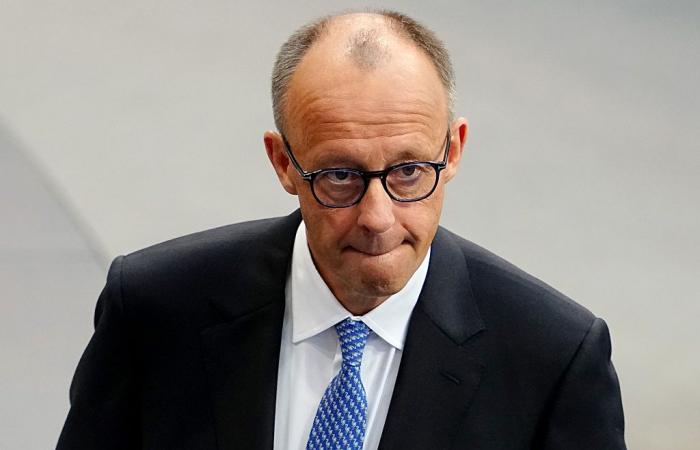This article is likely to be updated with new information.
The designated candidate for the German Chancellery, Friedrich Merz, did not obtain the majority necessary in Parliament on Tuesday, May 6 to be elected in the first round. An unprecedented situation, especially since its coalition has the majority within the hemicycle.
The leader of the Christian Democratic Union (CDU) collected only 310 votes out of the 630 deputies in Bundestagwhile 316 were necessary to win the absolute majority. 307 deputies voted against him and three abstained.
The government coalition-composed of the CDU and its Bavarian brother party, the CSU, as well as the Social Democratic Party (SPD)-nevertheless has a majority of 328 seats which would have been sufficient to confirm the chancellor.
This situation is unprecedented: never in the history of post-war federal Germany, an appointed candidate for the Chancellery had failed to be elected in the first round.
The failure of the first round threw cold in the hemicycle. After the announcement of the results by the president of BundestagJulia Klöckner, a heavy silence fell into the room. The session was immediately suspended to allow parliamentary groups to meet.
Friedrich Merz has not yet spoken since the announcement of the results.
Next steps
Friedrich Merz can again try to be elected.
Throughout the morning, the coalition parties continued their exchanges with the presidency of Bundestag in order to fix the new date of the ballot.
Party officials said they hoped that the second round could take place on Tuesday, but a second round can only be organized on the same day as the first that if a majority of two-thirds votes in favor of a derogation from the regulations of the Parliament-a threshold that the future CDU/CSU-SPD coalition does not reach itself.
Jens Spahn, leader of the parliamentary group of the CDU/CSU center-right block, said the parties “Would present [Friedrich] Merz in the second round “ In any case.
In the event of failure during the second round, a third and last vote may be organized. This time, only a relative majority will suffice – a result that Friedrich Merz has already obtained in the first round.
If the Chancellor is elected by majority relating to the third round, the German president Frank-Walter Steinmeier may appoint him within seven days or dissolve the Bundestag and organize early elections.
By then, Olaf Scholz remains in office as an acting chancellor, ensuring the continuity of the executive.








